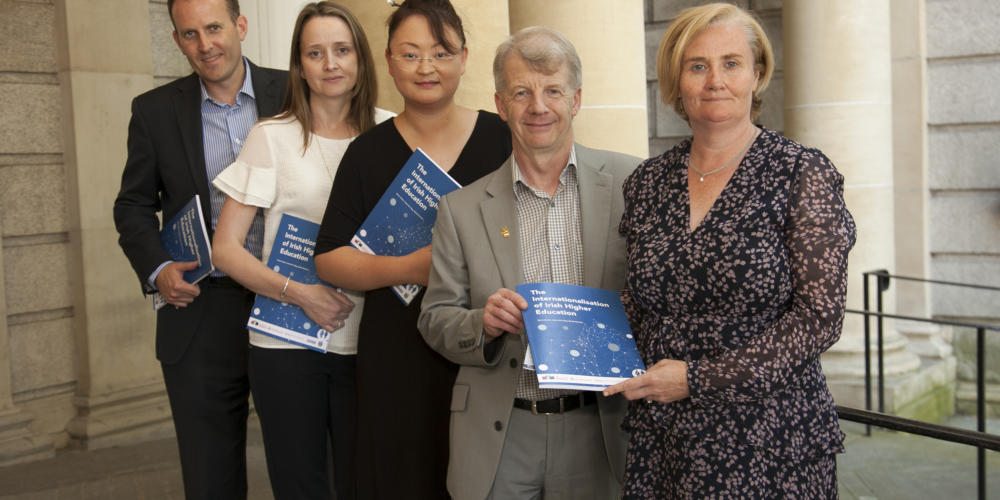

Students choosing Ireland according to new report
Gerry O'Sullivan
Posted: 3 July, 2018
“You heard about Brexit and I know there’s a lot of Polish there (UK) and I heard a lot of people feel insecure. So, I think I will not go to U.K. because I don’t want to have those problems. And I know that I should be welcomed here, there’s a lot of Polish people here as well they have really positive opinions about Ireland”. – Polish student in Ireland
This was one of the comments captured by Associate Professor Marie Clarke (UCD), Dr. Linda Hui Yang (UCD) and David Harmon (Insight) in their study of the “Internationalisation of Irish higher education”. The report, commissioned by the Higher Education Authority, is the first of its kind in Ireland. It was funded by the Irish Research Council under its Research for Policy in Society action.
Other “student voices” detailed in the report indicating the reasons why they choose Ireland as a study destination state “it was cheaper than the US, Canada and the UK. It was way cheaper than them. And secondly it was in Europe.” Other factors that impact on students’ choices include:
- Ireland is an English-speaking country
- Its perception as a safe country especially for females
- The quality of the education on offer
- The friendly welcome of the Irish people
Associate Professor Marie Clarke (UCD) commented “this study provides insights into the successful progress made by Irish higher education institutions in the area of internationalisation which has a long tradition in the Irish higher education system. It also reveals the challenges that such success brings in terms of the need for additional resources to support this activity, the issues that emerge in teaching and learning contexts and the range and diversity of supports that both international and Irish students require in order to ensure that internationalisation is a truly inclusive and holistic experience for all students”.
Accepting the report, the Chief Executive of the HEA Dr. Graham Love said, “the report is particularly timely as it comes at a stage when the HEA enters into the latest phase of the system performance dialogue with the institutions. The internationalisation of higher education is one of the key pillars of that process. The findings of this seminal report which was commissioned by the HEA will be extremely helpful in guiding the sector to put in place the supports and practices that will help ensure that the international education experience in Ireland is a positive one.”
The authors also surveyed 40 higher education institutions from the public and private sectors on a range of topics covering inter alia issues relating to the drivers of internationalisation; views on the way Irish higher education is promoted internationally, the internationalisation of the curricula, and the benefits of having international students on campuses.

Institutions reported that “they were not internationalising to the fullest extent but were constrained by the lack of resources”. The report states “a recurring theme in the data was the emphasis on increasing numbers and revenue rather than using resources to meet the needs of international students”.
The report concluded the “The reliance on this approach was viewed as problematic and there was a general awareness (among HEIs) that other factors should also inform approaches to internationalisation. These included increasing mobility in the student market, the promotion of outward mobility (of students and staff from Ireland) and securing international accreditation for programmes and government policy.”
Gerry O’Sullivan, Head of International Education at the HEA added “The internationalisation of Irish higher education has made remarkable progress in the last decade against a backdrop of the worst recession since the 1930s. This a remarkable achievement by the sector. It is also a profound statement of intent that despite the economic collapse part of the response was to strengthen our international engagement with European and other global partners.”
The report also concluded that the opinion of staff in the sector was that the Institution Head and senior management team were viewed as the main drivers of the internationalisation agenda and that greater efforts should be made to embed the process at all levels of the organisation.

